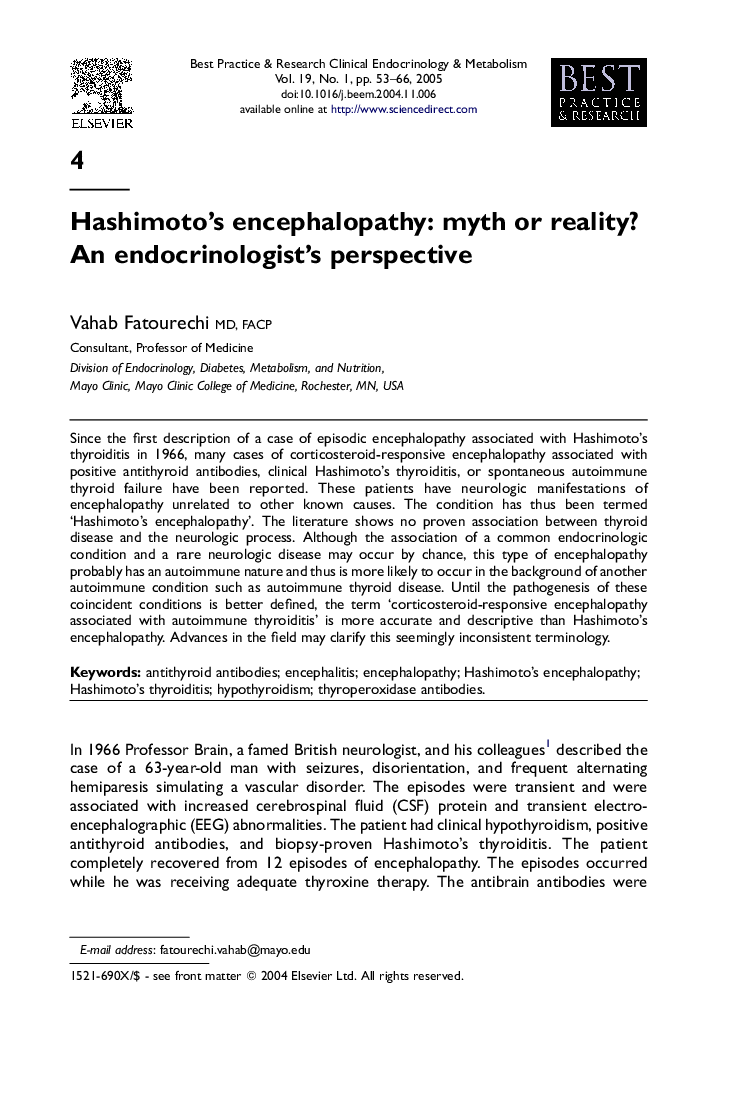| Article ID | Journal | Published Year | Pages | File Type |
|---|---|---|---|---|
| 9110486 | Best Practice & Research Clinical Endocrinology & Metabolism | 2005 | 14 Pages |
Abstract
Since the first description of a case of episodic encephalopathy associated with Hashimoto's thyroiditis in 1966, many cases of corticosteroid-responsive encephalopathy associated with positive antithyroid antibodies, clinical Hashimoto's thyroiditis, or spontaneous autoimmune thyroid failure have been reported. These patients have neurologic manifestations of encephalopathy unrelated to other known causes. The condition has thus been termed 'Hashimoto's encephalopathy'. The literature shows no proven association between thyroid disease and the neurologic process. Although the association of a common endocrinologic condition and a rare neurologic disease may occur by chance, this type of encephalopathy probably has an autoimmune nature and thus is more likely to occur in the background of another autoimmune condition such as autoimmune thyroid disease. Until the pathogenesis of these coincident conditions is better defined, the term 'corticosteroid-responsive encephalopathy associated with autoimmune thyroiditis' is more accurate and descriptive than Hashimoto's encephalopathy. Advances in the field may clarify this seemingly inconsistent terminology.
Keywords
Related Topics
Life Sciences
Biochemistry, Genetics and Molecular Biology
Endocrinology
Authors
Vahab (Consultant, Professor of Medicine),
